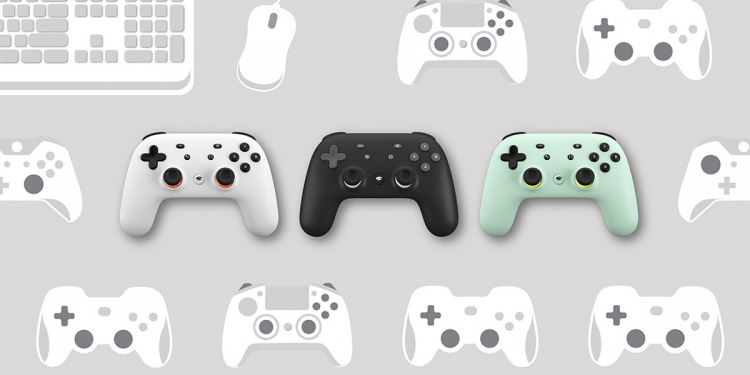As someone who spent the majority of his childhood gaming on 512kbps internet on a used Dell Vostro desktop, I’m well-versed in the concept of lag. It’s awful. And it’s something I strive to eliminate from my gaming life as an adult. That’s why I pay top dollar for fibre connectivity and even built my own gaming PC from scratch so I would have full control of the parts that go into my system.
Relying on the Internet to not lag–even in 2K19–is like owning a pet Velociraptor. Sure, when it listens to you, it’s probably a lot of fun. But, when it acts up, you’re pretty much screwed.
So, to say that I was a little skeptical when I saw the release of Google Stadia, would be an understatement. I mean, Google wants to harness the power of their servers to stream AAA games to any supported device over the internet? Sounded to me like a disaster in the making. And if the early reviews are anything to judge the product by, it looks like a disaster it has become.
YouTuber Dave2D is the guy I go to for laptop and gaming device reviews. So when he published his latest video on Google Stadia, I want to say that I was surprised at how terrible the experience looked, but the skeptic in me was like “I KNEW IT”.
And you know it’s bad when you can see the latency in a YouTube video. Like, I could almost count the seconds between him moving the thumbstick and his car reacting on-screen. OK, maybe there’s a bit of exaggeration there, but in the world of gaming, milliseconds can mean the difference between an awesome experience and an awful one.
On top of that, despite being on a Gigabit internet connection (Google says you only need 35Mbps for the best experience), we can see Dave’s games stutter and choke on screen as the connection is interrupted. You can see his character teleporting on screen because there’s that disconnect between what’s being shown on screen and what he inputs into the Stadia controller. Can you imagine playing a shooter with that? Or a racing sim?
Then, thanks to YouTube’s algorithm, I came across several more reviews that corroborate Dave2D’s findings.
Even feels-like-you’re-Batman has-a-little-something-for-everyone IGN weren’t happy with this service.
The only positive content I saw about Stadia was Austin Evans’ Google-sponsored video:
But why did this happen to Stadia?
Well, two things stick out to me. The first is the fact that this is a video streaming model that’s being applied to a a video game. Games aren’t like videos or movies because they lack one crucial aspect that makes video streaming work: a buffer. When you watch YouTube or Netflix over the internet, the service can pre-load sections of the video as you’re watching it when you’ve got connectivity so when the connection inevitably gets spotty, your video won’t be interrupted.
That’s because videos will always play out the same way so it’s easy for streaming services to create that buffer to ensure the smoothest experience. Video games don’t have that luxury.
Every input is new and that makes the bar a lot higher for something like this compared to video streaming. It’s like a livestream that you can interact with, and we all know how unreliable livestreams can be even on the best internet connections.
Secondly, I think it was a mistake for Google to target the hardcore gamer with AAA titles. If you’re going after the casual gamer, the odds of them complaining about a little latency will be much lower. But if your audience is the gamer that demands the absolute best, you better be able to provide that or you’ll have a riot on your hands.
Especially if you’re going to be charging top dollar, which the Stadia’s USD129 (~RM539) upfront payment and subsequent USD9.90 (~RM41) monthly subscription is.
Now, I haven’t had the chance to give this service a try so I’ll hold of sharing my own opinions on that until I do, but the initial impressions I’ve seen don’t inspire confidence. I will say this though: I’d be OK with the inevitably lower quality stream and rather limited roster of games in the beginning, but if you make me deal with latency and stuttering in-game, that’s when I’ll say bye Felicia.







